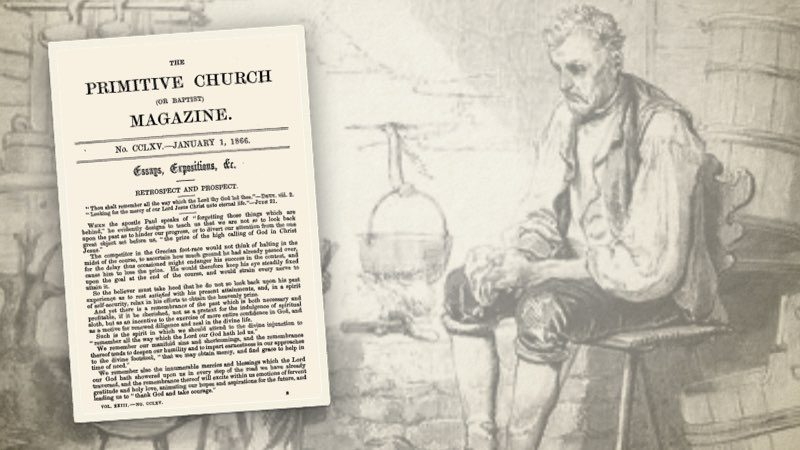
The Nature And Increase Of Faith
Primitive Baptist Magazine 1852:
Faith is the gift and the operation of God. It comes by the Holy Spirit’s power rising and strengthening the sublimest faculties of the soul, and is really a regeneration—a rebegetting—a revival of life from the dead. Thus the believer is said to be “born of the Spirit,” because it is the Spirit’s office in the covenant of grace to regenerate, and because it is the promise concerning the Spirit to all, “even as many as the Lord our God shall call.” And thus also the Christian is said to be “born, not of blood, nor of the will of the flesh, nor of the will of man, but of God.”
When the principle of divine life and light is given to the soul, it enables the soul to feel its own loss and misery, and to see its own sin and darkness. A man can have no true sight of his sin but by this grace. He is therefore in some sense a believer before he knowns himself to be one. Faith acts in him before he can be sensible of the reflect act of faith. He first lives, and then he feels his misery, and then he cries for mercy. He cries for mercy, and then is enlightened to see the way of mercy in the Word of mercy. He is next enlightened to behold the free welcome and rich bounty of this mercy to all returning sinners. He is enabled to contemplate upon himself, and view the fitness of God’s mercy for him, and his fitness as needy and convinced sinner for it. He is then strengthened to embrace it, like a poor creature who must perish without it, but who shall never perish with it. And at length God’s grace seals itself upon the soul, by giving a true taste of joy and peace in believing, insomuch that the broken, withered heart revives, and is able today, I do humbly venture to believe that Christ died for me, and will save me for evermore.
Ambrose Serle
It may be argued the Strict and Particular Baptist churches of the 17th, 18th and early 19th centuries were at their strongest when they remained independent congregations, unaffiliated with Magazines and Societies. This strength was lost during the latter half of the 19th century when the churches clamored around favorite periodicals and regional associations. Although the Magazines were largely responsible for creating a party-spirit and culpable for stirring up needless controversy, they nevertheless contain many valuable resources which may prove a blessing for this generation. Although they differed on various points of doctrine, they invariably held to high views of sovereign grace, denouncing as heresy the pernicious teachings of Andrew Fuller. The majority of Strict and Particular Baptist churches during the 18th and 19th centuries were Hyper-Calvinists.



